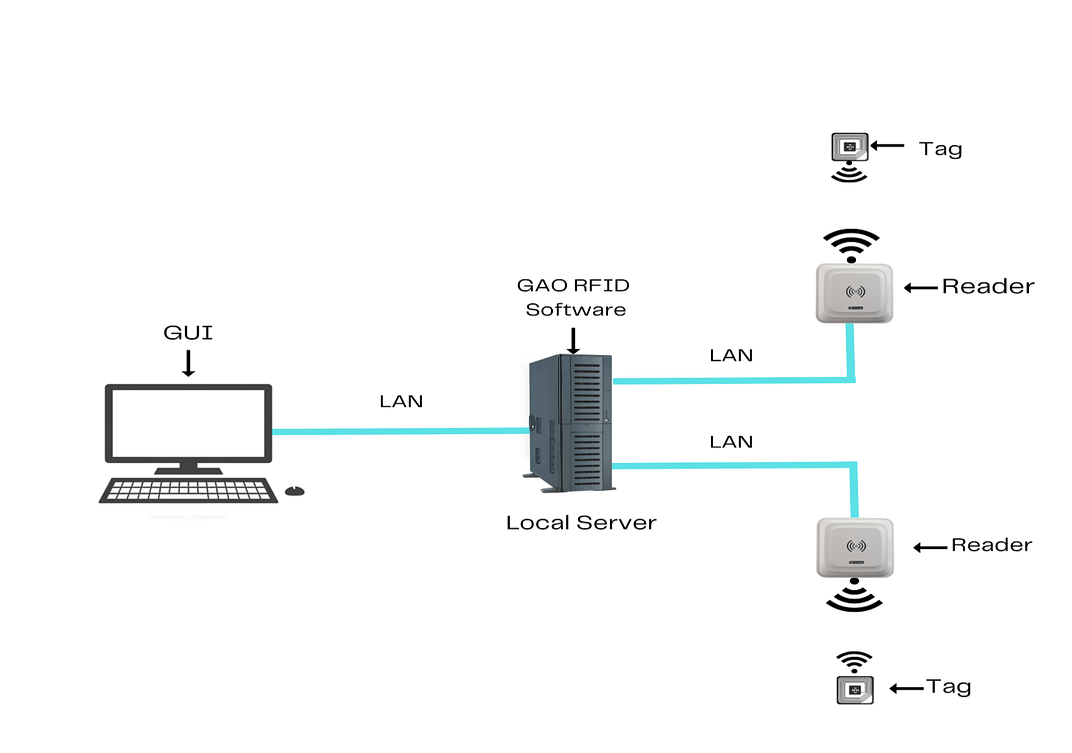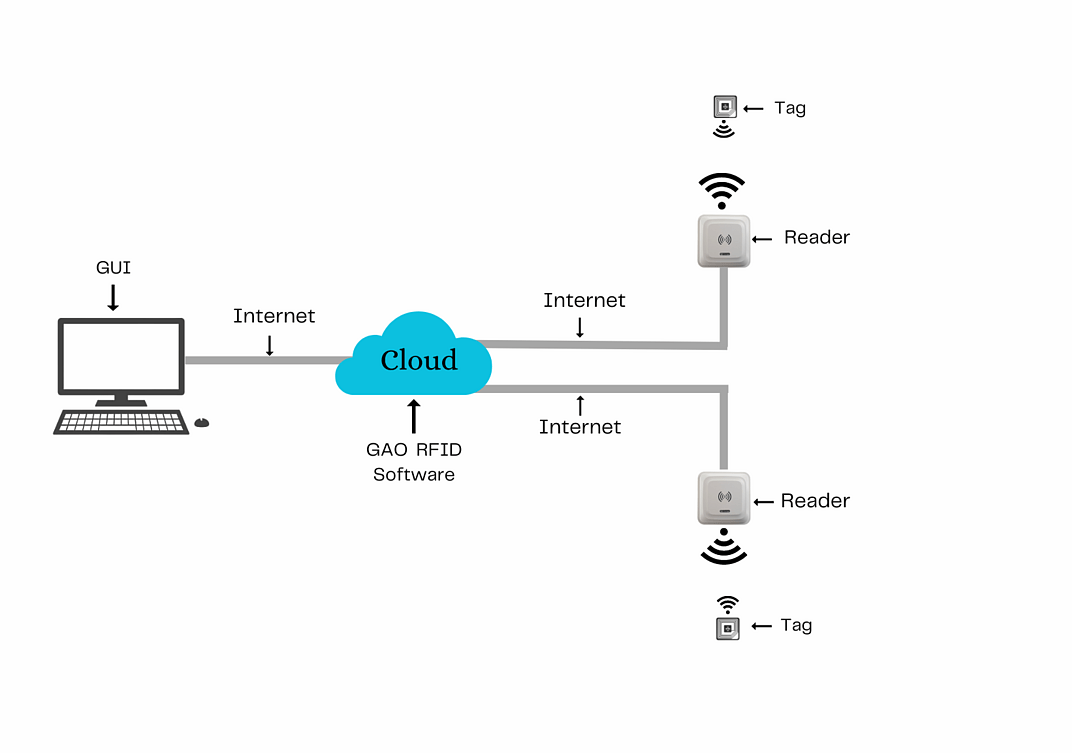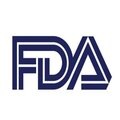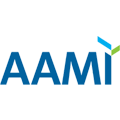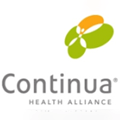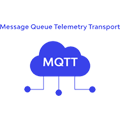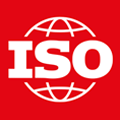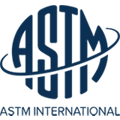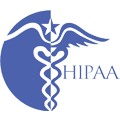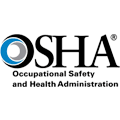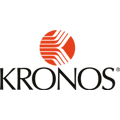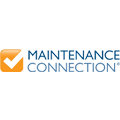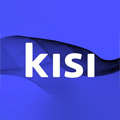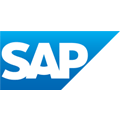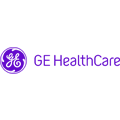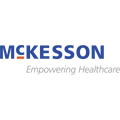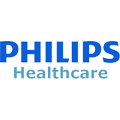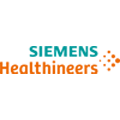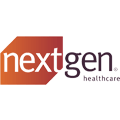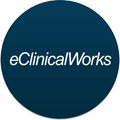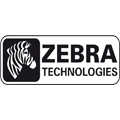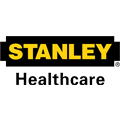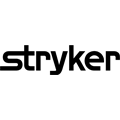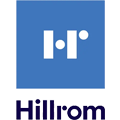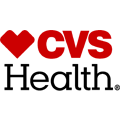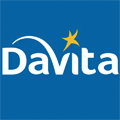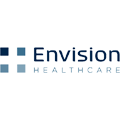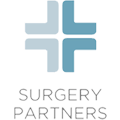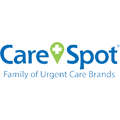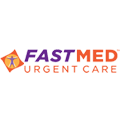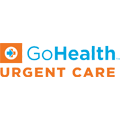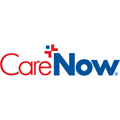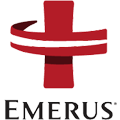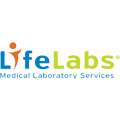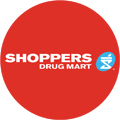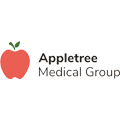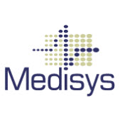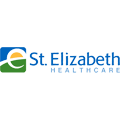Index
Overview
Applications & Benefits of GAO’s RFID, BLE, IoT & Drones for the Ambulatory Health Care Services
GAO Helps Customers with Standards, Mandates & Regulations of the Ambulatory Health Care Services
GAO Software Provides Easy API integration
Case Studies of RFID Applications
GAO RFID Systems & Hardware for the Ambulatory Health Care Services
GAO Has Served the Ambulatory Health Care Services Extensively
Overview
The ambulatory health care services industry includes a range of healthcare services that are provided on an outpatient basis, meaning patients receive care without being admitted to a hospital. This includes services such as primary care, specialty care, diagnostic testing, imaging, rehabilitation, and other outpatient services. Ambulatory care can be provided in various settings, including clinics, urgent care centres, surgery centres, and outpatient departments of hospitals.
GAO’s RFID, BLE, IoT, and drone technologies have helped its customers in the ambulatory health care services industry to improve their work processes, their operations and productivity by better management of their staff, materials and operational equipment such as examination tables, medical scales and measuring devices, blood pressure monitors, electrocardiogram (ECG) machines, pulmonary function testing equipment, X-ray, Ultrasound, CT, MRI, centrifuges, microscopes, test kits, surgical instruments, sterilizers, surgical gloves and gowns.
Ranked as one of the top 10 global RFID suppliers, GAO RFID Inc. is based in New York City, U.S. and Toronto, Canada. GAO offers a comprehensive selection of UHF, HF (including NFC) and LF RFID (radio frequency identification) readers and tags, BLE (Low Energy Bluetooth) gateways and beacons, and various RFID and BLE systems such as people tracking, asset tracking, access control, parking control, fleet management, WIP (work in progress), traceability. Such RFID and BLE products and systems, as well as its IoT and drone technologies, have been successfully deployed for the ambulatory health care services industry.
Applications & Benefits of GAO’s RFID, BLE, IoT & Drones for the Ambulatory Health Care Services
To satisfy its customers, GAO’s RFID or RFID Systems for the ambulatory healthcare services industry are offered in 2 versions. One version is that its software is running on a local server, and another version is that its software runs in the cloud. The above illustrates GAO system for the ambulatory health care services industry with its software running on a local server.
The above illustrates GAO system for the ambulatory healthcare services industry with its software running in cloud.
GAO’s RFID technologies bring the many benefits to the ambulatory health care services industry:
- Improved patient safety: GAO’sRFID technology can help ensure that patients receive the right medication, treatment, or procedure by tracking their medical history, allergies, and other relevant information.
- Enhanced inventory management: GAO’s RFID tags can be used to track medical equipment and supplies, which can reduce waste, minimize stockouts, and prevent the use of expired products.
- Increased efficiency: Our RFID-enabled systems can automate many manual processes, such as patient check-in, tracking patient flow, and managing medical equipment, which can save time and reduce errors.
- Enhanced security: RFID technology can be used to track access to restricted areas, ensuring that only authorized personnel have access.
- Improved data accuracy: By automatically capturing data, ourRFID systems can reduce errors and improve the accuracy of patient records, billing, and other administrative tasks.
- Better tracking of patient flow: GAO’s RFID tags can be used to track patient movement throughout the facility, providing insights into patient wait times, bottlenecks, and other operational issues.
- Cost savings: GAO’s RFID technology can help reduce costs associated with manual data entry, inventory management, and other administrative tasks.
GAO’s BLE technologies offer longer reading range and particularly attractive for applications with larger work spaces within the ambulatory health care services industry:
- Real-time tracking and monitoring: GAO’s BLE-enabled wearables can track vital signs and other health metrics in real-time, providing healthcare providers with up-to-date information on patient health.
- Improved patient engagement: Patients can use our BLE-enabled devices to monitor their health and receive alerts and reminders, promoting engagement and adherence to treatment plans.
- Enhanced safety: GAO’s BLE technology can be used to track the location of patients and medical equipment, reducing the risk of lost or stolen items.
- Better communication: BLE-enabled devices can facilitate communication between patients and healthcare providers, allowing for remote consultations and virtual visits.
- More accurate data: Our BLE-enabled sensors can capture more accurate and reliable data than manual measurements, improving the accuracy of patient records and clinical decision-making.
- Increased efficiency: Our BLE-enabled devices can automate many manual processes, such as patient check-in, which can save time and reduce errors.
- Improved patient outcomes: By providing real-time data insights and promoting patient engagement, our BLE technology can help improve patient outcomes and reduce healthcare costs.
GAO’s RFID and drone technologies are often combined and such solutions offer the following benefits to the ambulatory health care services industry:
- Faster and more efficient delivery of medical supplies: GAO’s Drones equipped with RFID technology can quickly deliver medical supplies to ambulatory care facilities, reducing delivery times and improving efficiency.
- Improved inventory management: GAO’s RFID technology can be used to track medical supplies, which can reduce waste, minimize stockouts, and prevent the use of expired products. Drones can be used to perform inventory checks, enabling faster and more accurate inventory management.
- Enhanced patient care: Our Drones can be used to deliver emergency medical supplies to remote areas, improving access to care and potentially saving lives.
- Increased efficiency: The use of drones can reduce the need for manual deliveries, saving time and reducing errors.
- Cost savings: The use of GAO’s drones can reduce transportation costs and improve inventory management, leading to cost savings for ambulatory care facilities.
- Improved safety: By reducing the need for manual deliveries, the use of drones can reduce the risk of injury to personnel involved in transportation.
- Better data insights: The use of GAO’s RFID and drone technologies can provide better data insights, enabling more informed decision-making and improved patient care.
Here are benefits of GAO’s IoT technologies to the ambulatory health care services industry:
- Remote patient monitoring: GAO’s IoT devices can collect and transmit patient health data, enabling remote patient monitoring and telemedicine services.
- Improved patient engagement: Patients can use our IoT devices to track their health and receive alerts and reminders, promoting engagement and adherence to treatment plans.
- Enhanced safety: GAO’s IoT devices can be used to track the location of patients and medical equipment, reducing the risk of lost or stolen items.
- Better communication: Our IoT devices can facilitate communication between patients and healthcare providers, allowing for remote consultations and virtual visits.
- More accurate data: Our IoT devices can capture more accurate and reliable data than manual measurements, improving the accuracy of patient records and clinical decision-making.
- Increased efficiency: Our IoT devices can automate many manual processes, such as patient check-in, which can save time and reduce errors.
- Improved patient outcomes: By providing real-time data insights and promoting patient engagement, our IoT technology can help improve patient outcomes and reduce healthcare costs.
- Predictive analytics: GAO’s IoT data can be used to predict patient needs and health trends, enabling proactive interventions and personalized care.
- Remote device management: Our IoT devices can be remotely managed and updated, reducing the need for on-site maintenance and improving device uptime.
GAO Helps Customers with Standards, Mandates & Regulations of the Ambulatory Health Care Services
GAO RFID Inc. has helped many companies in the ambulatory health care services industry to deploy RFID, BLE, IoT and drone systems and to ensure such deployments complying with the applicable industry standards, mandates and government regulations:
RFID, BLE, IoT, & Drone Standards & Mandates
- HL7 (Health Level Seven) Standard: This is a set of international standards for exchanging clinical and administrative data between healthcare systems, which includes standards for RFID technology.
- AAMI (Association for the Advancement of Medical Instrumentation) Standard: This is a standard for RFID-enabled medical devices, which provides guidelines for their design, testing, and use in clinical settings.
- Continua Health Alliance: This is a non-profit organization that promotes interoperability between healthcare devices and systems, which includes support for BLE technology.
- MQTT (Message Queuing Telemetry Transport): This is a lightweight messaging protocol that is commonly used for IoT applications, which provides a way for devices to publish and subscribe to data streams.
- Open Connectivity Foundation (OCF): This is a non-profit organization that develops and promotes standards for IoT interoperability, which includes support for healthcare applications.
- FAA Part 107: This is a set of regulations for drone operation in the United States, which includes requirements for remote pilot certification, airspace restrictions, and operational limitations.
- ISO 21384: This is an international standard for drone safety and risk management, which includes guidelines for drone operation in healthcare settings.
- ICAO (International Civil Aviation Organization) Guidelines: These are guidelines for drone operation in healthcare settings, which include recommendations for airspace management, risk assessment, and regulatory compliance.
U.S. Government Regulations
- HIPAA (Health Insurance Portability and Accountability Act): This is a federal law that establishes standards for protecting the privacy and security of patients’ personal health information (PHI).
- FDA (Food and Drug Administration) Regulations: The FDA regulates medical devices and pharmaceuticals, which are important components of the Ambulatory Health Care Services Industry. The FDA requires that medical devices and drugs undergo testing and approval before they can be marketed to the public.
- OSHA (Occupational Safety and Health Administration) Regulations: OSHA establishes workplace safety standards, which apply to the Ambulatory Health Care Services Industry.
- Medicare and Medicaid Regulations: These are federal healthcare programs that provide reimbursement for healthcare services, including those provided by ambulatory care facilities. Ambulatory care facilities that participate in Medicare or Medicaid must comply with various regulations to be eligible for reimbursement.
- State Licensing and Certification Requirements: Ambulatory care facilities are subject to state licensing and certification requirements, which vary from state to state.
Canadian Government Regulations
- Canada Health Act: This is a federal law that sets out the principles for the delivery of healthcare services in Canada. The Act requires that healthcare services be publicly funded, accessible, comprehensive, universal, and portable.
- Personal Information Protection and Electronic Documents Act (PIPEDA): This is a federal law that governs the collection, use, and disclosure of personal information in Canada. PIPEDA sets out rules for how organizations must obtain consent from individuals for the use of their personal information, and for how organizations must protect personal information in their custody.
- Provincial and Territorial Regulations: Each province and territory in Canada has its own regulatory framework for the delivery of healthcare services. This includes requirements for the licensing and accreditation of ambulatory care facilities, and for the qualifications and training of healthcare professionals.
- Canada Labor Code: The Canada Labor Code sets out the rights and responsibilities of employers and employees in federally regulated industries, including healthcare. The Code includes provisions for occupational health and safety, workplace harassment and violence prevention, and other workplace issues.
GAO’s Software Provides API
GAO’s RFID and BLE software offers a free trial for both the server-based and cloud versions, and offers an API to the important systems in the ambulatory health care services industry such as:
Personnel Management
- Employee scheduling and time tracking
- Payroll management
- Performance evaluation and management
- Employee training and certification tracking
- Employee health and safety management
Equipment Management
- Asset tracking and management
- Maintenance scheduling and tracking
- Calibration and quality control management
- Equipment usage monitoring and reporting
- Equipment disposal management
Access Control
- Patient and staff identification and verification
- Visitor management
- Electronic access control for restricted areas
- Authentication for computer systems and applications
- Biometric identification and verification
Warehouse Management
- Inventory management and tracking
- Receiving and shipping management
- Stock rotation and expiration management
- Order fulfillment and distribution management
- Supply chain optimization
Supply Chain Management
- Vendor and supplier management
- Procurement and purchasing management
- Logistics and transportation management
- Demand forecasting and planning
- Cost management and optimization
Other Applications
- Electronic health records management
- Patient monitoring and tracking
- Telemedicine and remote patient care
- Patient engagement and education
- Compliance management and reporting
GAO has integrated its RFID, BLE, IoT and drone systems with some of leading software and cloud services in the ambulatory health care services industry. Below are some of popular software and cloud services in the ambulatory health care services industry.
- ADP Workforce Now – a cloud-based HR management system that includes payroll, time tracking, and benefits administration.
- Kronos Workforce Ready – a unified workforce management solution that includes HR, payroll, and time and attendance tracking.
- BambooHR – an HR software platform that includes recruiting, onboarding, performance management, and time tracking.
- Zenefits – an HR software platform that includes benefits administration, payroll, and compliance management.
- UltiPro – a cloud-based HR management system that includes payroll, benefits administration, and talent management.
- eMaint CMMS – a cloud-based computerized maintenance management system that includes work order management, preventive maintenance scheduling, and asset tracking.
- Maintenance Connection – a web-based CMMS that includes asset management, work order management, and preventive maintenance scheduling.
- Avigilon Control Center – a video management software that includes access control and identity management features.
- Kisi – a cloud-based access control system that includes mobile access, visitor management, and door scheduling.
- Brivo – a cloud-based access control system that includes mobile access, visitor management, and video surveillance integration.
- LenelS2 – provides a range of access control solutions including smart cards, readers, and biometric identification systems.
- SAP Extended Warehouse Management – a warehouse management software that includes inventory management, order management, and logistics optimization.
- HighJump Warehouse Management – a cloud-based solution that includes inventory management, order management, and supply chain visibility.
GAO has worked with some of the leading technology companies in the ambulatory health care services industry in to provide integrated its RFID, BLE, IoT and drone solutions to customers. Here are some of the technology leaders in the ambulatory health care services industry:
- Allscripts Healthcare Solutions – provides healthcare information technology solutions and services including electronic health records, population health management, and revenue cycle management.
- McKesson Corporation – provides healthcare information technology solutions and services including electronic health records, revenue cycle management, and supply chain management.
- Athenahealth – provides healthcare information technology solutions and services including electronic health records, population health management, and revenue cycle management.
- GE Healthcare – provides healthcare information technology solutions and services including electronic health records, imaging and diagnostic solutions, and population health management.
- Philips Healthcare – provides healthcare information technology solutions and services including imaging and diagnostic solutions, monitoring and analytics solutions, and population health management.
- Siemens Healthineers – provides healthcare information technology solutions and services including imaging and diagnostic solutions, laboratory diagnostics, and population health management.
- NextGen Healthcare – provides healthcare information technology solutions and services including electronic health records, population health management, and revenue cycle management.
- eClinicalWorks – provides healthcare information technology solutions and services including electronic health records, patient engagement, and population health management.
- Zebra Technologies Corporation – provides electronic devices and systems for healthcare including barcode printers, mobile computers, and RFID devices.
- STANLEY Healthcare – provides electronic devices and systems for healthcare including asset management solutions, patient monitoring solutions, and environmental monitoring solutions.
- Stryker Corporation – provides electronic devices and systems for healthcare including medical imaging systems, surgical navigation systems, and patient handling systems.
- Hillrom – provides electronic devices and systems for healthcare including patient monitoring solutions, respiratory care solutions, and medical surgical solutions.
Case Studies of RFID Applications
Below are some RFID application cases in the ambulatory health care services industry:
- Memorial Sloan Kettering Cancer Center (USA): Memorial Sloan Kettering implemented an RFID system to track and manage the location and movement of critical medical equipment and supplies within their ambulatory care facilities. RFID tags were attached to items like infusion pumps, wheelchairs, and portable diagnostic equipment. The system helped improve asset utilization, reduce equipment loss, and enhance staff productivity.
- North York General Hospital (Canada): North York General Hospital implemented an RFID-based patient tracking system in their ambulatory care unit. RFID wristbands were provided to patients, and RFID readers were installed at various checkpoints throughout the facility. The system allowed staff to monitor patient flow, reduce wait times, and improve overall operational efficiency.
- Mercy Medical Center (USA): Mercy Medical Center implemented an RFID-enabled medication management system in their ambulatory care clinics. RFID tags were attached to medication containers, and RFID readers were installed at medication dispensing stations. The system helped ensure the right medication was given to the right patient at the right time, reducing medication errors and enhancing patient safety.
- Toronto General Hospital (Canada): Toronto General Hospital implemented an RFID-based inventory management system in their ambulatory surgical unit. RFID tags were attached to surgical instruments and trays, and RFID readers were installed in storage areas and operating rooms. The system helped automate inventory tracking, improve instrument sterilization processes, and reduce manual labor required for inventory management.
- OhioHealth (USA): OhioHealth, a not-for-profit health system, implemented UFH RFID technology to enhance asset tracking and management in their ambulatory care facilities. RFID tags were attached to medical equipment and supplies, enabling real-time visibility and monitoring of inventory. The system helped improve operational efficiency, reduce equipment loss, and enhance patient care.
- Sunnybrook Health Sciences Centre (Canada): Sunnybrook Health Sciences Centre integrated UFH RFID technology into their ambulatory care unit for patient tracking and flow management. RFID wristbands were provided to patients, and RFID readers were installed at key points within the facility. The system facilitated accurate patient identification, reduced wait times, and improved overall patient experience.
- Mayo Clinic (USA): Mayo Clinic implemented UFH RFID technology for specimen tracking and management in their ambulatory care laboratories. RFID tags were attached to specimen containers, enabling automated tracking throughout the testing process. The system improved specimen visibility, reduced errors, and enhanced laboratory efficiency.
Many applications of RFID by GAO can be found here.
GAO RFID Systems & Hardware for the Ambulatory Health Care Services
GAO RFID Inc. offers the largest selection of BLE gateways, BLE beacons, RFID readers, tags, antenna, printers, and integrated RFID systems for various industries, including the ambulatory health care services industry.
BLE (Bluetooth Low Energy)
GAO offers advanced BLE gateways:
as well as versatile beacons with such important functions as temperature, humility, vibration and panic button:
GAO’s BLE technology is suitable for many industries, including the ambulatory health care services industry.
UHF (Ultra High Frequency) RFID
GAO offers the largest selection of UHF RFID readers for various industries, including the ambulatory health care services industry:
GAO RFID offers the widest choice of UHF RFID tags, labels, badges, wristbands for various industries, including the ambulatory health care services industry:
and an array of antennas to address different applications:
HF (High Frequency), NFC (Near Field Communications) and LF (Low Frequency) RFID
GAO offers the largest selection of HF, NFC, and LF RFID readers for various industries, including the ambulatory health care services industry:
- High Frequency 13.56 MHz Passive RFID Readers
- Low Frequency 134 kHz Passive RFID Readers
- Low Frequency 125 kHz Passive RFID Readers
HF, NFC and LF RFID tags, labels, badges, wristbands for various industries, including the ambulatory health care services industry:
and antennas:
GAO also offers RFID printers:
Digital I/O adapters:
and relay controllers:
For embedded applications, GAO offers UHF, HF and LF RFID reader modules:
- UHF 860 – 960 MHz RFID Modules
- 13.56 MHz High Frequency RFID Modules
- 125 kHz Low Frequency RFID Modules
The RFID systems by GAO are highly popular for clients in the ambulatory health care services industry:
Physical asset or operational equipment tracking system:
Assets that can be effectively tracked using GAO’s technologies include
- Portable Diagnostic Devices: These include devices such as portable ultrasound machines, mobile X-ray machines, and handheld diagnostic tools like digital thermometers, blood pressure monitors, and pulse oximeters. They enable healthcare professionals to perform diagnostic tests and gather vital patient data in ambulatory settings.
- Mobile ECG (Electrocardiogram) Devices: These devices allow for the monitoring and recording of a patient’s heart activity outside of traditional clinical settings. They are compact and portable, enabling ambulatory healthcare providers to assess cardiac health and detect abnormalities on the go.
- Infusion Pumps: Ambulatory healthcare services often use portable infusion pumps that can be carried by patients to deliver medications, fluids, or nutrients intravenously or through other routes. These pumps are lightweight, battery-powered, and programmable to provide controlled and continuous delivery.
- Mobile Ventilators: Mobile ventilators are used in ambulatory care settings to provide respiratory support to patients who require assistance with breathing. These compact and transportable devices are designed for use outside of traditional hospital environments, such as during patient transport or in emergency situations.
- Ambulatory Monitoring Systems: These systems are used for continuous monitoring of vital signs and physiological parameters outside of the hospital. They typically consist of wearable devices such as ambulatory ECG monitors, portable pulse oximeters, and ambulatory blood pressure monitors. These systems enable healthcare professionals to collect real-time data on a patient’s health status during their ambulatory care.
- Portable Defibrillators: Portable defibrillators are essential equipment for ambulatory healthcare services, particularly in emergency situations. These devices deliver an electric shock to the heart to restore normal rhythm in cases of cardiac arrest. They are designed to be lightweight, portable, and user-friendly for immediate use in ambulatory settings.
- Mobile Telehealth Equipment: Ambulatory healthcare services increasingly rely on telehealth equipment, including mobile devices with video conferencing capabilities, digital stethoscopes, and high-resolution cameras. These tools enable remote consultations, telemedicine services, and virtual patient monitoring, extending care beyond traditional clinic settings.
People or workers tracking system:
Personnel or people access control system:
Parking or vehicle control system:
GAO Has Served the Ambulatory Health Care Services Extensively
GAO’s products and technologies have helped its customers in the ambulatory health care services industry to achieve success in telehealth and virtual care, population health management, wearables, data analytics, electronic health records (EHRS), and patient engagement.
GAO RFID Inc. has deployed RFID, BLE and IoT projects for many companies in the ambulatory health care services industry, including many in its various divisions such as
- Ambulatory Surgery Centers (ASCs): These facilities specialize in providing same-day surgical procedures that do not require an overnight hospital stay. ASCs offer a wide range of surgical services across different medical specialties.
- Diagnostic Imaging Centers: These centers focus on diagnostic imaging services such as X-rays, ultrasounds, CT scans, MRI scans, mammograms, and other imaging modalities. They provide valuable diagnostic information to aid in the diagnosis and treatment of various medical conditions.
- Urgent Care Centers: Urgent care centers offer immediate medical attention for non-life-threatening conditions that require prompt attention but do not require emergency room care. They provide services like minor injury treatment, illness diagnosis and treatment, and basic laboratory tests.
- Retail Clinics: These clinics are usually located in retail stores or pharmacies and offer basic healthcare services for minor illnesses, vaccinations, physical exams, and preventive care. They are often staffed by nurse practitioners or physician assistants.
- Rehabilitation Centers: Rehabilitation centers focus on providing specialized therapies and treatments to individuals recovering from surgery, injuries, or medical conditions. They offer services like physical therapy, occupational therapy, speech therapy, and other rehabilitative interventions.
- Dialysis Centers: Dialysis centers provide treatment for patients with kidney disease or kidney failure. They offer hemodialysis or peritoneal dialysis services to filter waste and excess fluid from the blood when the kidneys are unable to do so.
- Outpatient Mental Health and Substance Abuse Centers: These centers provide mental health and substance abuse services on an outpatient basis. They offer counseling, therapy, medication management, and other support services for individuals dealing with mental health disorders or substance abuse problems.
- Primary Care Clinics: Primary care clinics serve as the first point of contact for individuals seeking routine healthcare services. They provide general medical care, preventive services, health screenings, vaccinations, and management of common illnesses and chronic conditions.
- Specialty Clinics: Specialty clinics focus on specific medical specialties such as cardiology, dermatology, gastroenterology, orthopedics, and more. They provide specialized diagnostic and treatment services related to their respective fields.
Here are some of the leading companies in the ambulatory healthcare services industry


